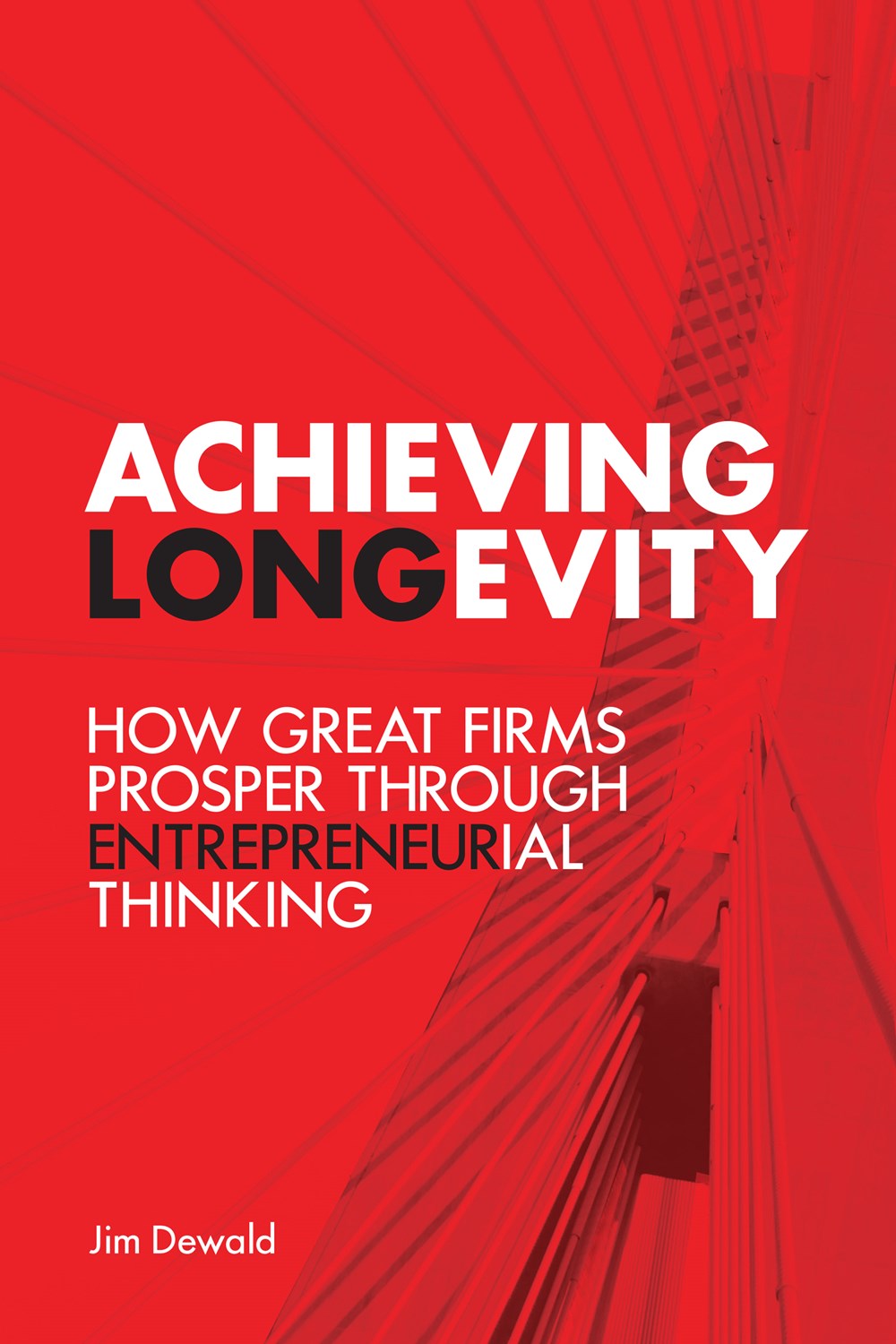Achieving Longevity: How Great Firms Prosper Through Entrepreneurial Thinking
June 30, 2016
The dean of Calgary’s Haskayne School of Business, Jim Dewald, is concerned that "business leaders … have lost touch with the all-important entrepreneurial spirit that drove growth and prosperity in the past," and has written a book to remedy it.

“I needed to write this book because I am concerned that businesses in general, and business leaders in particular, have lost touch with the all-important entrepreneurial spirit that drove growth and prosperity in the past,” writes Jim Dewald in Achieving Longevity: How Great Firms Prosper Through Entrepreneurial Thinking. The author, who is dean of Calgary’s Haskayne School of Business as well as a former CEO and entrepreneur, proves that an organization’s long-term survival depends on its ability to engage in corporate entrepreneurship.
According to Dewald, today’s business leaders put too much emphasis on efficiency and commoditization, rather than innovation. “Because of an unwavering focus on efficiency, all too many firms have stripped away excess resources, reducing or eliminating their capacity to innovate, and have weeded out entrepreneurial skills,” Dewald warns. This makes them vulnerable to disruptive change and eventually leads to their decline.
In Achieving Longevity, Dewald draws on his own business experience as well as his analysis of recent research and his study of firms that have stood the test of time—including Honda, IBM, Nucor Steel, 3M, and others—to present a framework that organizations can use to develop their own paths to longevity through corporate entrepreneurship.
“The long-term survival of a firm depends on its ability to engage corporate entrepreneurship to adapt to changing markets, technologies, and/or social-cultural factors,” he explains. “However, although most existing corporations have almost everything an individual entrepreneur seeks in pursuit of success—money, brainpower, leadership capabilities, sales channels, research facilities, customers, status—corporate entrepreneurship is actually quite rare.”
Dewald details what it takes to foster the kind of entrepreneurial thinking and action that allows firms to seek out new opportunities. The key is to establish a corporate culture that accepts failure, and rewards effort and experimentation, so that everyone within the organization is comfortable applying an entrepreneurial mindset to their work. “Opportunities are not the exclusive domain of a few creative people,” Dewald writes. “They come from everyday people, and it is up to management to use proven systems and processes to support opportunity development.” He advises organizations to:
- Establish a clear narrative of entrepreneurial success within the firm. This demands a highly egalitarian and transparent organization in which employees feel comfortable asking the boss questions. It should be completely plausible that any team member with the necessary skills and abilities can rise to the top.
- Identify the idea generation path most suited to the organization. One such path is “bricolage,” best described as “making do with what one has” to meet a customer need. Another possible path is “effectuation,” in which entrepreneurship is driven by discoveries within the firm.
- Engage in an opportunity discovery and creation process. “Discovering opportunities can be a highly planned and purposeful corporate action. It is a matter of prioritizing, setting aside the always present tasks of the day, pulling together an interdisciplinary team, and giving them the encouragement and freedom to explore ways to do things differently,” explains Dewald.
- Support middle management. Middle management plays an important role in balancing the tensions between frontline workers who take individual initiative, and organizational needs for guidance and control.
In Achieving Longevity, Dewald also pinpoints the barriers to corporate entrepreneurship, dissecting the three primary areas of resistance—from within the firm, from the supply chain, and from the customer—and showing how each can be tackled systematically. He points out the role that business schools have played in perpetuating the lack of corporate entrepreneurship, and suggests remedies. As a business education leader, his comments pack a powerful punch.
Achieving Longevity is a carefully researched call-to-action to change the way business leaders perceive their roles and run their organizations. Many of Dewald’s conclusions are completely counterintuitive to established dogma, but his prognosis for the future is positive and upbeat. He writes, “I want to celebrate the power of entrepreneurship in a team setting, where people combine their passion to form organizations and work collaboratively to build a sustainable difference in the lives of others … Doing so gives meaning to life itself. This is why I am passionate about entrepreneurial thinking.” Achieving Longevity is a clarion call that no leader can afford to ignore.
ABOUT THE AUTHOR
Jim Dewald is the dean of the University of Calgary’s Haskayne School of Business and an associate professor in strategy and entrepreneurship. A business leader who can provide an effective bridge between strategy theory and on-the-ground practice, he holds a BSc in civil engineering, an MBA from the University of Alberta, and a PhD in strategy and global management from the University of Calgary. Prior to entering academe, he was active in the Calgary business community as the CEO of two major real estate development companies and a leading local engineering consulting practice, and president of a tech-based international real estate brokerage company.

